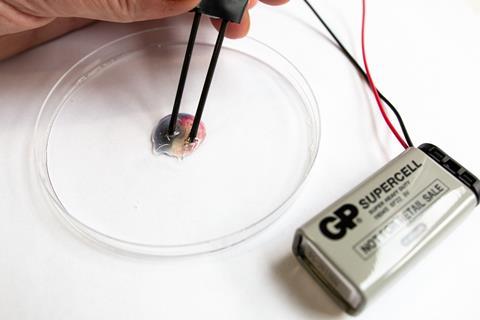Submit your presentation or poster to the online microscale conference by 1 July

Entries have opened for the 11th International Symposium on Microscale Chemistry (ISMC), supported by the Royal Society of Chemistry and Secondary and Further Education Group (SaFE) together with CLEAPSS.
All those involved in education across the world – whether teacher, lecturer, technician or education student – are invited to contribute either a presentation or poster by 1 July 2021.
Submit your entry
Presentations should be 15 minutes long, with 5 minutes allowed afterwards for questions. To submit an abstract, speakers should send the Speaker details form on the ISMC website to Bob Worley via the supplied email address.
Posters can be entered by sending the Poster form on the ISMC website to Bob Worley via the supplied email address, or on Twitter using the hashtag #ismc2021poster. Alongside your poster you may submit a YouTube link to a sub-two-minute video pitch to explain a particular aspect in more detail or to show a video of an experiment.
Learn more about the symposium and submit entries via the ISMC 2021 website.
ISMC is an international conference to promote interest in small-scale, innovative practical chemistry work at all levels of science education. The first ISMC event was organised in Mexico in 2000 and events have been held every couple of years ever since across Asia, Africa and Europe. This year’s event was scheduled to be held in the UK, but has moved online due to the pandemic and will be held virtually on Wednesday 14 July from 12pm BST.
The themes for entries this year include developing and evaluating microscale techniques; microscale during the pandemic; using microscale to combat misconceptions; microscale CPD; and connecting microscale with green chemistry. These have been selected to link to the broader aims of the ISMC, which encompass making people aware of the advantages of microscale chemistry, developing new microscale techniques and increasing opportunities for practical chemistry participation across the world.


















No comments yet